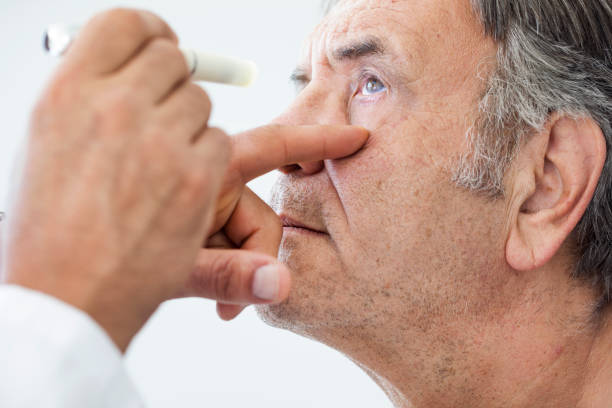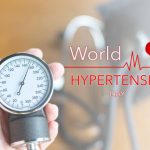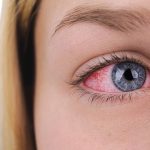The ONE organ responsible for high blood pressure.
Strikes of Hypertension in the Eyes

Does high blood pressure cause eye problems?
Along with causing heart and kidney problems, untreated high blood pressure can also affect your eyesight and lead to eye disease. Hypertension can cause damage to the blood vessels in the retina, the area at the back of the eye where images focus. This eye disease is known as hypertensive retinopathy. The damage can be serious if hypertension is not treated.
Hypertensive retinopathy is an eyesight disorder that occurs as a result of high blood pressure. High blood pressure, also called hypertension, occurs when the force of blood against the artery walls is too high, causing the arteries to stretch, narrow and become damaged over time.
Causes
The higher the blood pressure and the longer it has been high, the more severe the damage is likely to be. You have a higher risk of damage and vision loss when you also have diabetes, high cholesterol level, or you smoke. Rarely, very high blood pressure develops suddenly. However, when it does, it can cause severe changes in the eye. Other problems with the retina are also more likely, such as:- Damage to the nerves in the eye due to poor blood flow
- Blockage of the arteries that supply blood to the retina
- Blockage of the veins that carry blood away from the retina
What Are the Symptoms of Hypertensive Retinopathy?
of A person typically won't experience symptoms of mild to moderate hypertensive retinopathy; it is usually discovered during a routine eye exam. Symptoms of more severe and accelerated hypertension might include headaches and vision problems. Severe retinopathy can occur alongside high blood pressure during pregnancy, so prenatal care is important.
Most people with hypertensive retinopathy do not have symptoms until late in the disease.
Symptoms may include:
- Double vision, dim vision, or vision loss
- Headaches
Sudden symptoms are a medical emergency. It often means that the blood pressure is very high.
Exams and Tests
Your health care provider will use an ophthalmoscope to look for narrowing of the blood vessels and signs that fluid has leaked from blood vessels.
The degree of damage to the retina (retinopathy) is graded on a scale of 1 to 4:
- Grade 1: You may not have symptoms.
- Grades 2 to 3: There are a number of changes in the blood vessels, leaking from blood vessels, and swelling in other parts of the retina.
- Grade 4: You will have swelling of the optic nerve and of the visual center of the retina (macula). This swelling can cause decreased vision.
Outlook (Prognosis)
People with grade 4 (severe retinopathy) often have heart and kidney problems due to high blood pressure. They are also at higher risk for stroke.
In most cases, the retina will heal if the blood pressure is controlled. However, some people with grade 4 retinopathy will have lasting damage to the optic nerve or macula.
When to Contact a Medical Professional
Get emergency treatment if you have high blood pressure with vision changes or headaches.
How Is Hypertensive Retinopathy Diagnosed?
An eye care professional can diagnose hypertensive retinopathy. Using an ophthalmoscope, an instrument that projects light to examine the back of the eyeball, the doctor will look for signs of retinopathy that include:- Narrowing of blood vessels
- Spots on the retina known as cotton wool spots and exudates
- Swelling of the macula (the central area of the retina) and optic nerve
- Bleeding in the back of the eye









